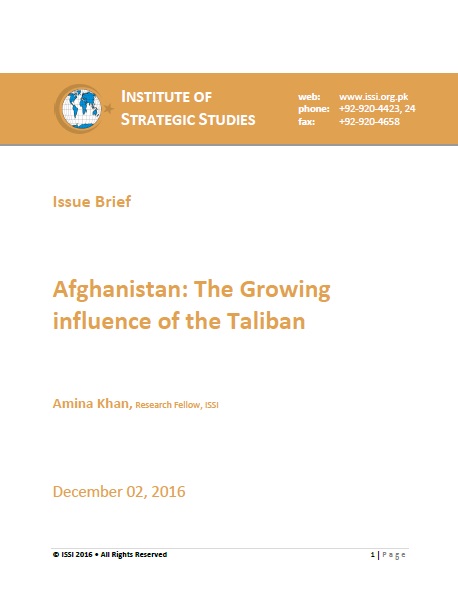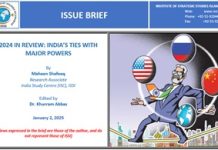Despite 15 years of international presence in Afghanistan and the US claims of achieving progress and development, ‘Afghanistan is worse off today than it was before 2001.’ Since 2001, an estimated $685.6 have been spent on Afghanistan yet it has not made any significant change for the better. Afghanistan continues to be confronted by violence and insecurity; weak and ineffective governance, corruption, a flourishing drug trade that accounts for more than 90 per cent of the world’s opium and a growing Taliban insurgency that continues to escalate.
While President Karzai’s protracted tenure was marred by corruption and inefficiency, there were hopes that with the formation of the Government of National Unity (GNU) along with the takeover of security by Afghan National Security Forces (ANSF), the state of affairs in Afghanistan would improve. However, Afghanistan continues to be challenged by a myriad of problems, and is far from being stable. Not only has President Ghani struggled to establish a stable cabinet, like his predecessor, he too has failed to being stability to the country or make headway with the Afghan Taliban. Afghanistan continues to stand highly divided on the issue of the Taliban and has yet to develop national consensus, as well as a national narrative. While President Ghani has achieved success with Gulbuddin Hekmatyar’s Hizb-e-Islami, he has struggled to revive peace talks with the Taliban. However, the peace agreement with the Hizb-e-Islami appears to be more of a symbolic victory for the government as the group has been largely inactive in recent years, and has not really been a part of the current insurgency. Therefore although it is a breakthrough for the Ghani government, the move has not reduced violence in the country nor has it had a meaningful impact on convincing the Taliban, who have dismissed the deal as a ‘political marriage’.















